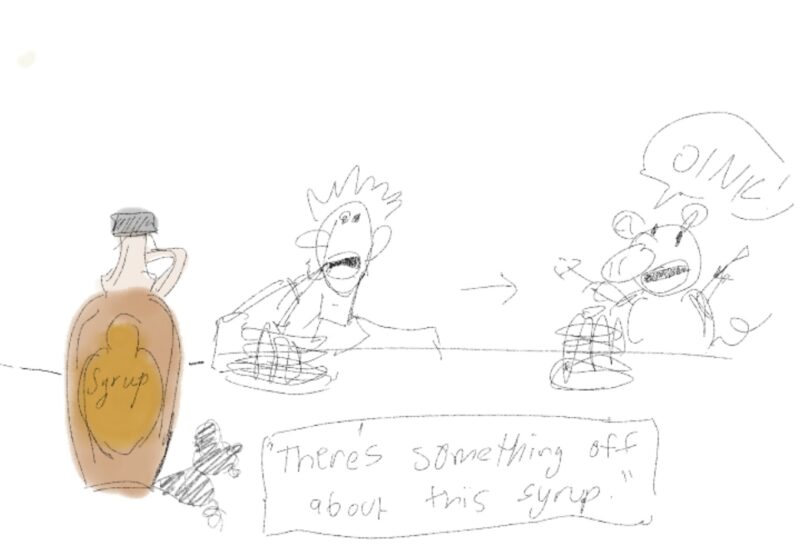Each fall, students from around the world scurry to meet college application deadlines, in which they provide detailed lists of their scholastic and extracurricular accomplishments. Students attempt to impress college admissions counselors, boasting their talents by showcasing the classes they took, their standardized test scores, the clubs they were involved in, their leadership positions, and whatever else they think distinguishes them from the pool of applicants they are competing against.
Within the last few months, however, some admissions leaders have discussed ways to incorporate good citizenship among the criteria for reviewing applicants. This change is part of an initiative called “Turning the Tide,” a project of the Harvard Graduate School of Education, whose goal is to “inspire concern for others and the common good through college admissions.”
With a greater emphasis placed on community service, colleges wish to not only promote better citizenship, but also to deter applicants from obsessing over academic achievement and over-involving themselves in extracurricular activities. The new initiative is especially unique in that it considers “family activities and paid work as community engagement.” In an article published by the Chronicle of Higher Education, “so far more than 80 admissions officials, high-school counselors, and education scholars—including at Columbia University, the College of Wooster, and the University of Michigan at Ann Arbor—have endorsed the push, which proponents see as a much-needed wake-up call.” Included in these 80 admissions officials is UR’s Dean of College Admission and Vice Provost for Enrollment Initiatives, Jonathan Burdick.
In an interview, Burdick clarified the University’s participation in “Turning the Tide”, stating, “I was approached for an endorsement of the report’s principles and analysis as myself, based on my role at Rochester, and I was happy to give it.” He also touched upon the changes UR’s admissions process will undergo in response to the initiative. Students can expect to see a supplement question to the effect of “better [understanding] how an applicant expects to be part of a community here, in part based on how they’ve functioned in the communities of which they’ve already been a part,” Burdick explained, adding, “That’s not as narrow as asking them to explain their formal ‘community service’ activities.” In terms of reviewing resumes listing extracurriculars, Burdick advised that students should highlight three of their most meaningful activities.
“An applicant who wants us to know about a broad range of performing arts activities, for example, could list one of their three as ‘performing arts,’ and, in the accompanying paragraph, describe experiences in theatre, dance, music, etc. But for us, that approach is more useful than a four-page résumé listing each production,” Burdick explained.
In reference to the new metric that will be developed to measure community involvement, Burdick emphatically stated, “I’m very excited about this, but we haven’t begun to discuss any details about it yet. For the class that’s applying right now, I hope to establish a baseline, maybe through close scrutiny of the applications of those who enroll this fall, supplemented by survey data. After that, I hope to publish this metric for each new class similar to the way we publish average GPA and test scores. But we have yet to begin thinking about this in detail.”
Dean Burdick is not the only one at UR who is optimistic about “Turning the Tide.” UR President Joel Seligman also gave his perspective on the initiative, stating, “as the title of the report indicates, this initiative attempts to stem the pressure put on college applicants to outdo each other when it comes to the total amounts of activities and community service commitments taken on. I believe the ‘Turning the Tide’ authors are attempting to cleanse this portion of the admissions process by suggesting that selective colleges and universities shift the focus to evaluating high school students based on the meaningful impacts they create through a much smaller set of service projects and achievements.”
Students at the University also seem to characterize the “Turning the Tide” initiative as positive. Junior Jessica Harper shared her thoughts on the likely changes the admissions process will undergo. “U of R students are no strangers to the pressure of the college application process and day to day academic life,” Harper said. “The ‘Turning the Tide’ initiative is a long-overdue positive step away from one of the many problems higher education in the U.S. today poses to students and society. While the initiative sets a great example for all kinds of institutions, and the amount and diversity in its collaboration is inspiring, it can’t undo the deep-rooted problems that have been building for over a decade.”
It will take at least a few years to fully establish the changes to UR admissions process, but the University expects a favorable outcome once they are in place.





